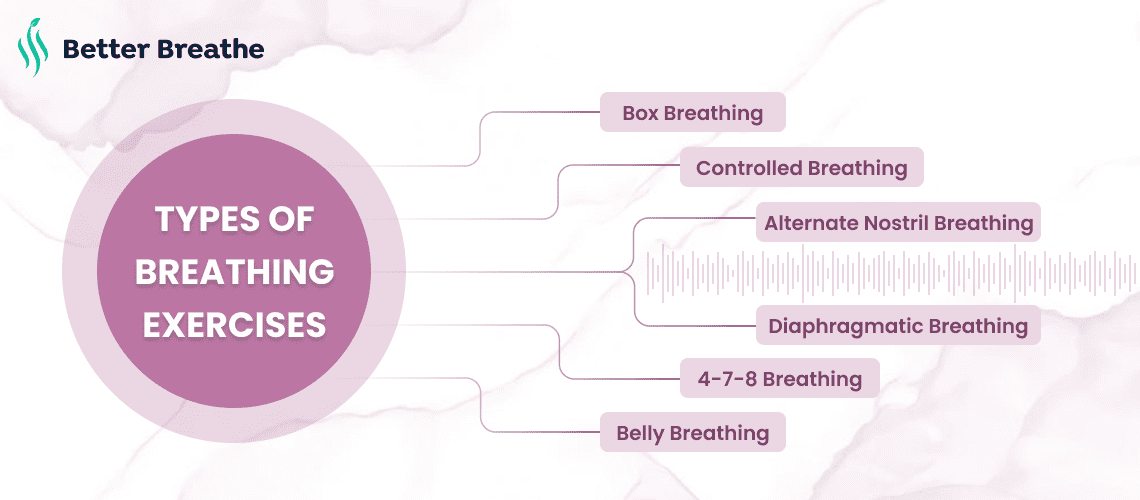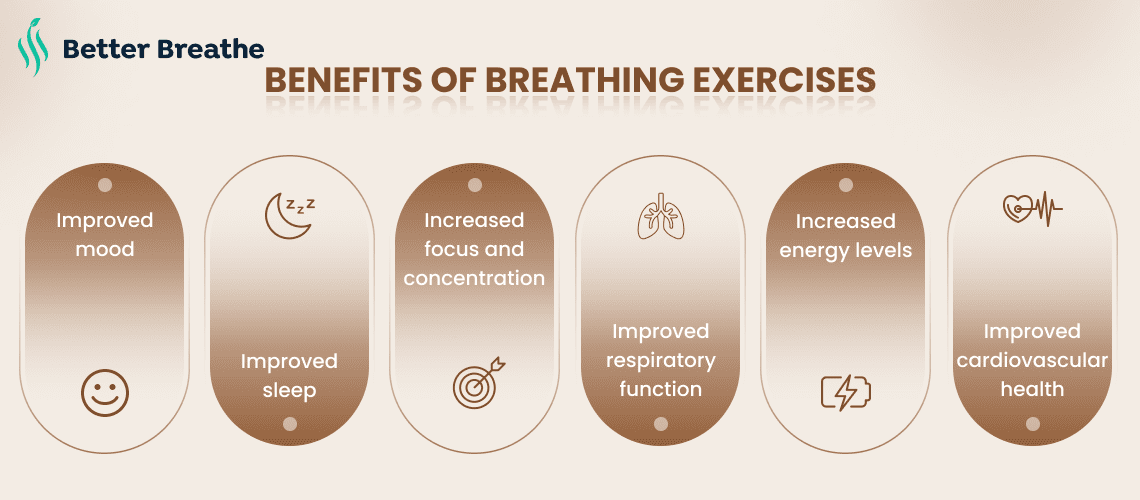Miracles of Breathing Exercises for Better Health Well-being
In this modern world where there is so much work and stress, do you have time to breathe? Of course, you all breathe subconsciously but have you ever sat down and let yourself breathe and focused on nothing but just breathing? Rarely, right? Around the chaos, breathing is often undervalued. Talking about breathing, breathing exercise is a life-changing habit that, if started and practiced, can change the course of your life.
Let's dive deep into what breathing exercises are.
Introduction to Breathing Exercises
Breathing exercises involve controlling and regulating the breath to promote physical and mental well-being, i.e., your mind and body. They can range from simple breathing techniques to more complex practices that incorporate movement, visualization, and mindfulness. The goal of breathing exercises is to help individuals gain control over their breath and use it as a tool for relaxation, stress reduction, and improved health.
Breathing exercises can be performed anywhere and at any time, and they can be customized to meet each person's individual needs and goals. Some common types of breathing exercises include diaphragmatic breathing, controlled breathing, alternate nostril breathing, belly breathing, four-seven-eight breathing, and box breathing.
It's important to practice breathing exercises regularly for optimal benefits and to consult with a doctor before starting any new exercise or breathing practice, especially if you have any underlying medical conditions or concerns or feel stress and anxiety.
Types of Breathing Exercises

Breathing exercises create a drastic improvement in one's life. There are several different breathing exercises, each with unique benefits and techniques. Here are a few common breathing exercises:
- •Diaphragmatic Breathing: This involves breathing deeply into the diaphragm, a muscle located at the base of the lungs, to promote full oxygen exchange and relaxation.
- •Controlled Breathing: Controlled breathwork involves breathing at a slow and steady pace to promote relaxation and reduce stress.
- •Alternate Nostril Breathing: This involves alternately blocking one nostril and breathing through the other to calm the mind and balance the body.
- •Belly Breathing: This exercise involves lying down and focusing on breathing into the belly to promote relaxation and reduce stress.
- •4-7-8 Breathing: This exercise involves inhaling for a count of four, holding the breath for a count of seven, and exhaling for a count of eight to promote relaxation and calmness.
- •Box Breathing: This exercise involves breathing in for a count of four, holding the breath for a count of four, exhaling for a count of four, and then holding the breath again for a count of four, repeating the cycle several times.
These are several breathing exercises, but you can start slowly with simple ones like the left nostril exercise and then level up to complex exercises once you start enjoying them. You just have to start, and you will feel the change from the very first day regarding calmness, peace, and decision-making.
Benefits of Breathing Exercises

Breathing exercises have unimaginable advantages. Some of these benefits include:
- •Stress and Anxiety Reduction: Breathing exercises can help calm the mind and reduce feelings of stress and anxiety by decreasing the levels of the stress hormone cortisol in the body.
- •Improved Mood: By reducing stress and anxiety, breathing exercises can help improve overall mood and increase feelings of calm and relaxation.
- •Improved Sleep: Breathing exercises can also help enhance the quality of sleep by relaxing the mind and body before bed.
- •Improved Respiratory Function: Breathing exercises can help strengthen the respiratory muscles and improve overall lung function, which can be especially beneficial for individuals with respiratory conditions such as asthma or chronic obstructive pulmonary disease (COPD).
- •Increased Focus and Concentration: By calming the mind, breathing exercises can also help improve focus and concentration.
- •Increased Energy Levels: Proper breathing techniques can increase oxygen levels in the body, leading to increased energy levels and a more alert state of mind.
- •Improved Cardiovascular Health: By promoting relaxation and reducing stress, breathing exercises can also help lower blood pressure and improve overall cardiovascular health.
It is always Important to Consult a doctor if you want to start a breathing exercise to overcome some medical conditions. If you want to start the exercise to overcome stress and Anxiety, then start with simple exercises, and ultimately you will see your mental as well as physical health improving.
Let's Sum It Up
We cannot deny the fact that meditation and exercise are the needs of life. So take out a few moments of calm in your life, relax, and just breathe.
If you want a motivator or looking for something that will help you in your meditation and breathing exercises, download Better Breathe right now on Android, iPhone, iPad, and Apple Watch and release all your stress. This application is available in the Play Store and App Store too, so download it now and launch your journey towards a healthy life.
Frequently Asked Questions (FAQs)
Q1: What are breathing exercises and how do they benefit physical and mental well-being?
Breathing exercises involve controlling and regulating breath to promote relaxation, stress reduction, and improved health. They benefit physical and mental well-being by enhancing respiratory function, reducing stress and anxiety, and improving mood, sleep quality, focus, concentration, and energy levels.
Q2: What are some common types of breathing exercises?
Common types of breathing exercises include diaphragmatic breathing, controlled breathing, alternate nostril breathing, belly breathing, four-seven-eight breathing, and box breathing.
Q3: How can one start practicing breathing exercises?
One can start practicing breathing exercises by beginning with simple techniques like diaphragmatic or controlled breathing and gradually progressing to more complex exercises as comfort and proficiency increase.
Q4: What are the benefits of breathing exercises?
The benefits of breathing exercises include stress and anxiety reduction, improved mood, sleep quality, respiratory function, focus, concentration, energy levels, and cardiovascular health.
Q5: Is it necessary to consult a doctor before starting breathing exercises?
It is advisable to consult a doctor before starting breathing exercises, especially if there are underlying medical conditions or concerns, to ensure safety and suitability for individual health needs.


